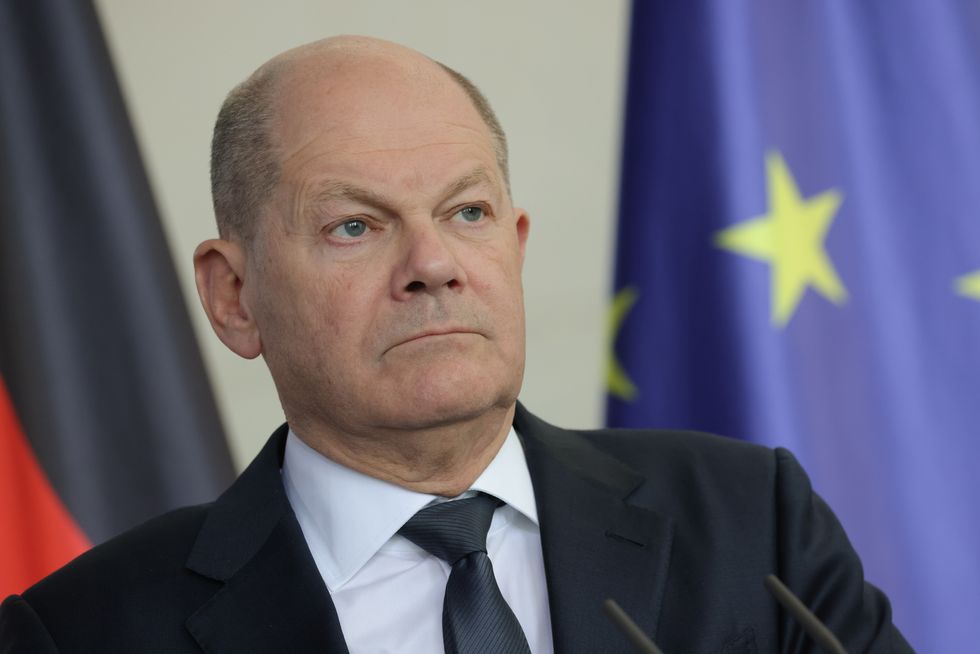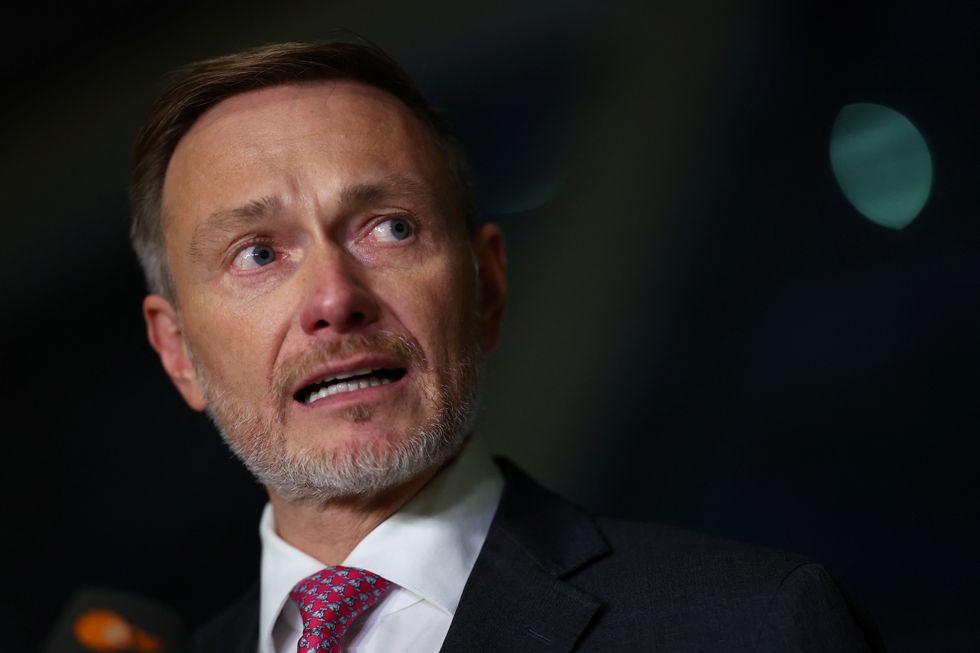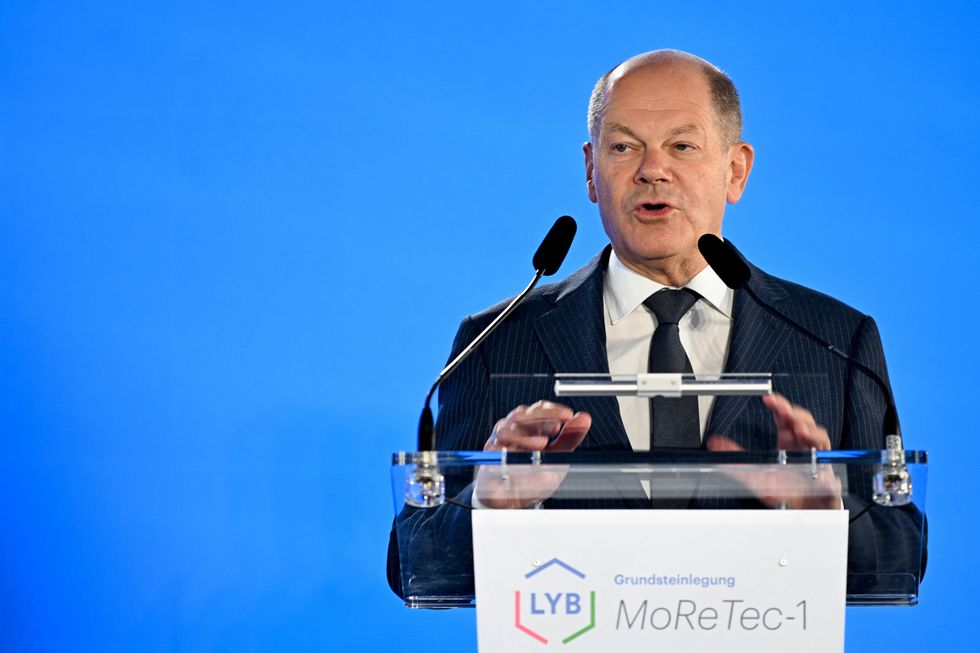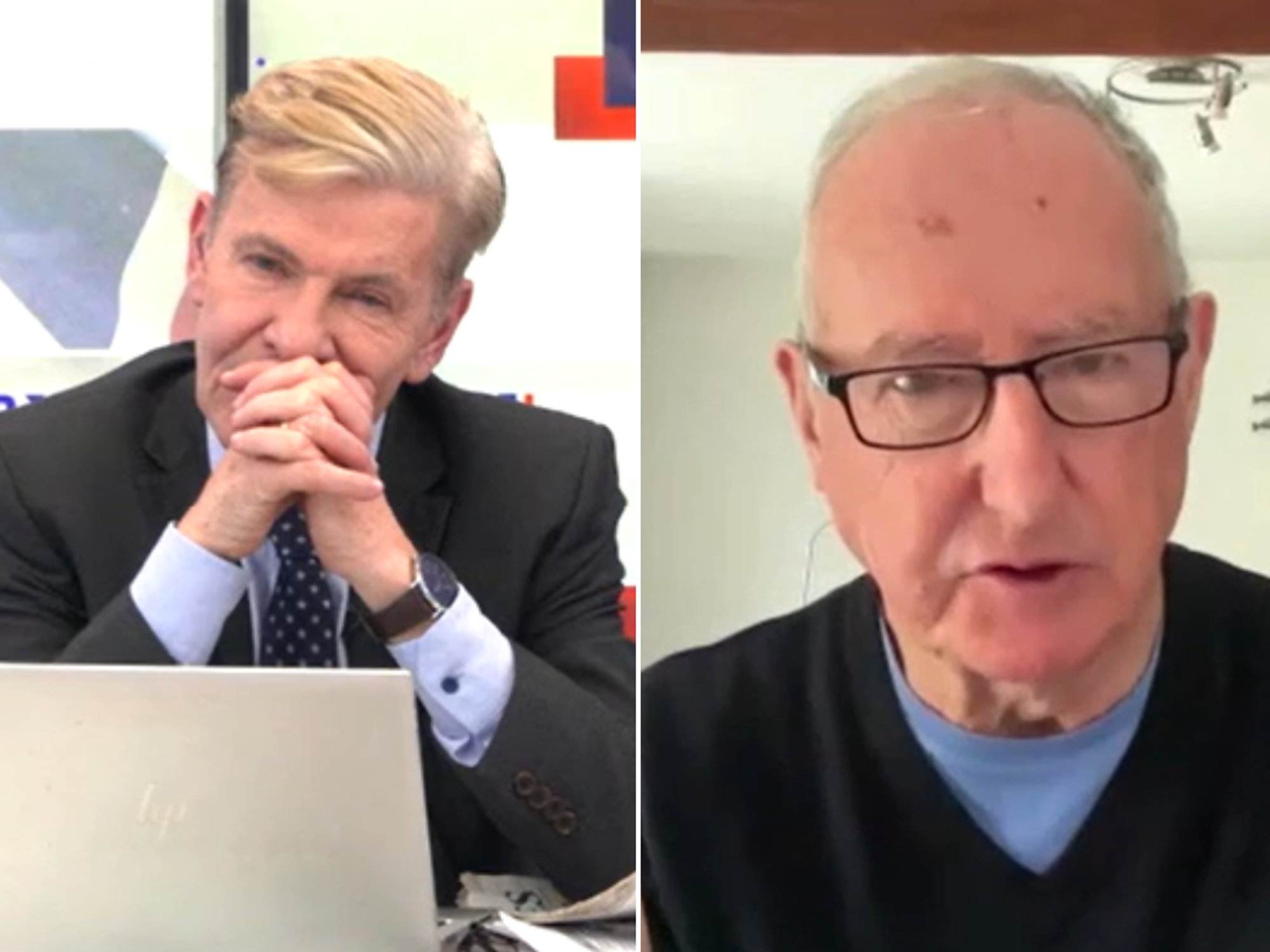Germany's Olaf Scholz on brink of LOSING imminent no-confidence vote as snap election looms

Scholz himself called the vote last Wednesday - allowing the Federal Chancellor to check whether the Bundestag trusts him and his policies
Don't Miss
Most Read
Latest
Germany’s Chancellor Olaf Scholz is set to face an imminent no-confidence vote which he is expected to lose and will likely to lead to snap elections in the new year.
The vote in the Bundestag today comes after the collapse of the country’s governing coalition last month, when Scholz dismissed Finance Minister Christian Lindner of the Free Democrats (FDP) after months of disagreements between the parties on how to manage the federal budget.
Scholz himself called the vote last Wednesday, which allows the Federal Chancellor to check whether or not the Bundestag trusts him and his policies.
If he loses, he will have to ask Germany’s president, Frank-Walter Steinmeier, to dissolve parliament.

Germany’s Chancellor Olaf Scholz is about to face a confidence vote
| GettySteinmeier can then decide whether to dissolve the Bundestag or not, though he already indicated in a speech in November that he would do so if Scholz loses.
He has 21 days to make a decision, and if he chooses to disband the government, then new elections must be held within 60 days. The date for the new elections has already been set for February 23, 2025.
Scholz initially announced that he planned to hold a confidence vote on January 15, however the centre-right Christian Democratic Union (CDU) put pressure on the Chancellor to hold them sooner.
The Chancellor plans to ask parliament to vote on the confidence motion at 1.00pm local time, with lawmakers scheduled to cast their ballots following a debate at around 3.30pm.
GERMANY LATEST:
 Lindner had rejected tax increases or changes to Germany’s harsh self-imposed limits on running up debt | Reuters
Lindner had rejected tax increases or changes to Germany’s harsh self-imposed limits on running up debt | ReutersIt is expected that Scholz will lose the vote as he is unlikely to secure the 367-seat majority required for him to win.
His party, the Social Democrats (SPD), holds 207 seats in the Bundestag and are expected to vote for him.
However, his junior coalition partner, the Greens with 117 seats, has said it will abstain from the vote.
Ahead of a likely snap election in February, the CDU is leading the polls with 31 per cent of the vote, followed by the far-right Alternative for Germany (AfD) with 18 per cent.
 Olaf Scholz said he would call for a vote of no confidence on January 15 in parliament | Reuters
Olaf Scholz said he would call for a vote of no confidence on January 15 in parliament | ReutersScholz’s SPD has 16 per cent and the Greens 12 per cent, respectively, and the FDP were polling just under the five per cent threshold.
Regarding the election campaign, politics professor Dr Hajo Funke said: "The three core issues - economic crisis management, social justice and war/peace - will dominate the election campaign."
The vote of confidence was introduced after the end of World War Two to ensure that the Chancellor would not dissolve the Bundestag on his own.
It has been called five times so far, with the latest being almost 20 years ago by former SPD Chancellor Gerhard Schröder.
Last month, Scholz fired Lindner, after weeks of disagreeing over economic reforms. Lindner had proposed early elections as a solution to the impasse, a proposal Scholz had rejected, according to Bild.
His sacking signified the end of the ruling coalition government between Scholz’s SPD, the Greens and Lindner’s FDP.
The three-party union could not agree on how to plug a €9billion hole in the spending plan ahead of a meeting of parliament’s budget committee the following week.











